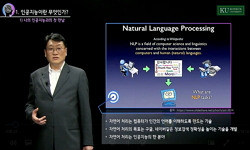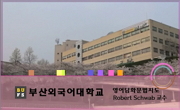This study uses a qualitative research method wherein the authors of the abstract are interviewed, and an in-depth analysis is conducted to determine the students' perceptions regarding note-taking, the purpose of note-taking, its application, and the...
http://chineseinput.net/에서 pinyin(병음)방식으로 중국어를 변환할 수 있습니다.
변환된 중국어를 복사하여 사용하시면 됩니다.
- 中文 을 입력하시려면 zhongwen을 입력하시고 space를누르시면됩니다.
- 北京 을 입력하시려면 beijing을 입력하시고 space를 누르시면 됩니다.

노트쓰기가 요약문 쓰기에 미치는 영향에 대한 질적 분석 = Qualitative Analysis of the Effect of Note-taking on Summary Writing
한글로보기https://www.riss.kr/link?id=A106587393
- 저자
- 발행기관
- 학술지명
- 권호사항
-
발행연도
2020
-
작성언어
Korean
- 주제어
-
등재정보
KCI등재
-
자료형태
학술저널
- 발행기관 URL
-
수록면
47-77(31쪽)
-
KCI 피인용횟수
0
- DOI식별코드
- 제공처
- 소장기관
-
0
상세조회 -
0
다운로드
부가정보
다국어 초록 (Multilingual Abstract)
This study uses a qualitative research method wherein the authors of the abstract are interviewed, and an in-depth analysis is conducted to determine the students' perceptions regarding note-taking, the purpose of note-taking, its application, and the relationship between the use of note-taking and the level of summary. Note-taking is an active, cognitive action that helps people to overcome memory-related limitations by recording as much information as possible in limited time and space, such as classrooms. Note-taking ensures the effective use of "attention" and "memory". Moreover, it influences other factors, such as "comprehension," "recognition," and "connection" with other knowledge. The participants indicated that they were fully aware of the utility of note-taking and actively used note-taking, based on their situation and conditions. The results showed that there was a clear difference in the use of "marking" and "memo". "Marking" was often used when the psychological burden of understanding or remembering information or knowledge was weak. On the other hand, "memo was generally used when the cognitive agent consciously determined the importance of the information at hand, thus indicating the need to remember or understand the information. "Memo" and "marking" were not limited to identifying and selecting information that should be learned in the summary process. Note-taking plays a real context role in organizing information. The results show that based on the level of summary, the difference in the recognition mode of note taking was not confirmed. The "high-level" group was specific about the role and function that note-taking played in the summary process. However, the "low-level" group retained the general level of perception. These findings show that there is a clear difference between the ability of the two group to apply and use note-taking for knowledge acquisition and elaboration. In addition, the "high-level" group spent increased time and effort to identify the subject, core content, and structure of the text by using note-taking and constructing the content of the summary. The study findings provide a tentative conclusion that the use of note-taking for training in specific writing genres, such as summary writing, can lead to substantial improvement in students' writing ability.
참고문헌 (Reference)
1 주민재, "요약 과정에 나타나는 노트쓰기 양상 분석" 한국작문학회 (42) : 58-94, 2019
2 Emig, J., "Writing as a model of learning" 28 (28): 122-128, 1977
3 Boscolo, P., "Writing as a Learning Tool" Kluwer Academic Publishers 2001
4 Slotte V., "Writing as a Learning Tool" Kluwer Academic Publishers 2001
5 Behrens, L., "Writing and Reading Across the Curriculum" Scott, Foresman and Company 1987
6 Slotte V., "Using notes during essay-writing: Is it always helpful?" 18 : 445-459, 1998
7 Kiewra, K. A., "The relationship between levels of notetaking and achievement" 3 : 273-280, 1984
8 Rivard, L. P., "Summary writing: A multi-grade study of French immersion and Francophone secondary students" 14 : 171-186, 2001
9 Castelló, M., "Students’ Note-Taking as a Knowledge-Construction Tool" 20 : 265-285, 2005
10 Baker, L., "Students' lecture notes and their relation to test performance" 12 : 28-32, 1985
1 주민재, "요약 과정에 나타나는 노트쓰기 양상 분석" 한국작문학회 (42) : 58-94, 2019
2 Emig, J., "Writing as a model of learning" 28 (28): 122-128, 1977
3 Boscolo, P., "Writing as a Learning Tool" Kluwer Academic Publishers 2001
4 Slotte V., "Writing as a Learning Tool" Kluwer Academic Publishers 2001
5 Behrens, L., "Writing and Reading Across the Curriculum" Scott, Foresman and Company 1987
6 Slotte V., "Using notes during essay-writing: Is it always helpful?" 18 : 445-459, 1998
7 Kiewra, K. A., "The relationship between levels of notetaking and achievement" 3 : 273-280, 1984
8 Rivard, L. P., "Summary writing: A multi-grade study of French immersion and Francophone secondary students" 14 : 171-186, 2001
9 Castelló, M., "Students’ Note-Taking as a Knowledge-Construction Tool" 20 : 265-285, 2005
10 Baker, L., "Students' lecture notes and their relation to test performance" 12 : 28-32, 1985
11 Van Dijk, T. A., "Strategies of discourse comprehension" Academic Press 1983
12 Peper, R. J., "Note-taking as a generative activity" 70 : 514-522, 1978
13 Einstein, G. O., "Note-Taking, Individual Differences, and Memory for Lecture Information" 77 (77): 522-532, 1985
14 Kiewra, K. A., "Note taking functions and techniques" 83 (83): 240-245, 1991
15 Di Vesta, F. J., "Listening and notetaking" 63 (63): 8-14, 1972
16 Wittrock, M. C., "Learning as a generative process" 19 (19): 87-95, 1974
17 Piolat, A., "Cognitive effort of note taking" 19 : 291-312, 2005
18 Ariel, R., "Agenda-based regulation of study-time allocation: When agendas override item-based monitoring" 138 (138): 432-447, 2009
19 Carvalho, J., "Acquiring, Elaborating and Expressing Knowledge – a Study with Portuguese University Students"
20 Benzer, A., "A Student-Focused Study: Strategy of Text Summary Writing and Assessment Rubric" 41 : 163-183, 2016
동일학술지(권/호) 다른 논문
-
- 한국어교육학회
- 민병곤
- 2020
- KCI등재
-
- 한국어교육학회
- 신명선
- 2020
- KCI등재
-
- 한국어교육학회
- 홍민경
- 2020
- KCI등재
-
- 한국어교육학회
- 김경아
- 2020
- KCI등재
분석정보
인용정보 인용지수 설명보기
학술지 이력
| 연월일 | 이력구분 | 이력상세 | 등재구분 |
|---|---|---|---|
| 2027 | 평가예정 | 재인증평가 신청대상 (재인증) | |
| 2021-01-01 | 평가 | 등재학술지 유지 (재인증) |  |
| 2018-01-01 | 평가 | 등재학술지 유지 (등재유지) |  |
| 2015-01-01 | 평가 | 등재학술지 유지 (등재유지) |  |
| 2011-01-01 | 평가 | 등재학술지 유지 (등재유지) |  |
| 2009-01-01 | 평가 | 등재학술지 유지 (등재유지) |  |
| 2007-01-01 | 평가 | 등재학술지 유지 (등재유지) |  |
| 2006-02-24 | 학술지명변경 | 외국어명 : 미등록 -> Korean Language Education |  |
| 2005-01-01 | 평가 | 등재학술지 유지 (등재유지) |  |
| 2002-01-01 | 평가 | 등재학술지 선정 (등재후보2차) |  |
| 1999-07-01 | 평가 | 등재후보학술지 선정 (신규평가) |  |
학술지 인용정보
| 기준연도 | WOS-KCI 통합IF(2년) | KCIF(2년) | KCIF(3년) |
|---|---|---|---|
| 2016 | 1.01 | 1.01 | 0.94 |
| KCIF(4년) | KCIF(5년) | 중심성지수(3년) | 즉시성지수 |
| 0.92 | 0.96 | 1.335 | 0.5 |





 KISS
KISS




